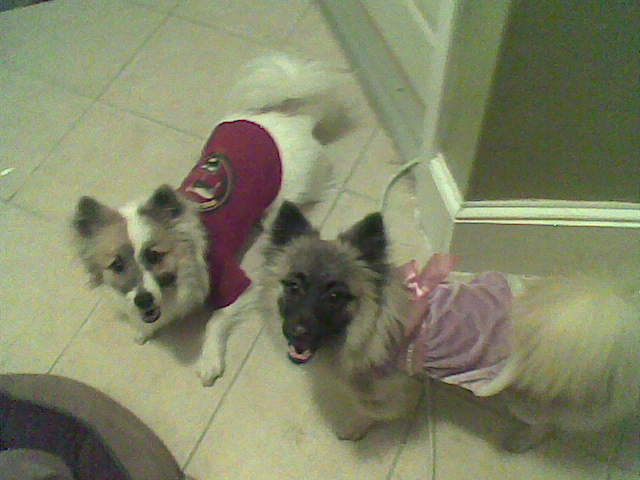QuestionWe have an 8 month old Shih tzu, Never had any health issues. Took her to the vet for the first time for her shots, and now she is lathargic. She doesn't want to eat or drink and she has these wheezing episodes. We have had her back at the vet twice now for this. Bllod test are normal, stool samples are fine Second blood test is normal the vaginal swab is normal. We are at a loss. I think the vet is at a loss. I'm tired of paying for test and ordering more test just for the vet to come back and say everything looks fine. They swear this is not caused by the vacinations or the worming medicine. Well I have to disagree she has never been sick until after her shots. No swelling No hives, Just a low grade fever. Am I wasting my money at this Vet?
AnswerHi Craig,
You didn't say which vaccines your puppy had, or how soon after being vaccinated that your dog started having symptoms.
It can indeed be a reaction, as having trouble breathing after a vaccination is one of the symptoms you're supposed to look out for. Or it could be a coincidence. It's impossible to guess.
It is true that some animals have a systemic reaction, including a low-grade fever or muscle aches and pain. This reaction is more common in young and toy breed dogs and causes them to eat less and sleep more for 24-48 hours. Rarely, dogs will have a more severe reaction, characterized by hives, swelling of the face, or even vomiting.
In a small number of animals, vaccines can stimulate the patient's immune system against his or her own tissues, resulting in diseases that affect the blood, skin, joints or nervous system. Again, such reactions are infrequent but can be life threatening.
If your puppy continues to have problems breathing, won't eat or the fever doesn't break, you must provide her with care. You can see another vet if you don't care for the one you've been using. Get your puppy's records from the old vet, they're yours.
Unfortunately, sometimes vet care seems like a hunt and peck method, since the patient can't talk. Once the simple stuff is ruled out, sometimes more testing is needed. Not providing care is nothing more than neglect.
Keep in mind, that when a reaction does occur, to revaccinate for the same diseases anytime later in the patient's life may be hazardous. Where legally mandated vaccines are required, and your pet has had a reaction to the required vaccine, your veterinarian should be your advocate and write a statement on animal hospital letterhead that the patient should be exempt from subsequent vaccinations for the disease because of the potential for another vaccine induced reaction.
Best of luck,
Patti

 TRAINING POMERANIANS
Question
chichi&coco
I have two Pomeranian-mixed do
TRAINING POMERANIANS
Question
chichi&coco
I have two Pomeranian-mixed do
 about babygirl my 14 week yorkie
Question
babygirl brooklyn
i do no whats going on with
about babygirl my 14 week yorkie
Question
babygirl brooklyn
i do no whats going on with
 7 week old lurcher pup
Question
this is Lady
hi there me and my partner purch
7 week old lurcher pup
Question
this is Lady
hi there me and my partner purch
 8wk old pup biting
Question
pebbles
hi i wonder if u can help me my
8wk old pup biting
Question
pebbles
hi i wonder if u can help me my
 Pinched nerve
Question
Agustus Tybierius vonG
My 4 y/o, intact male G
Pinched nerve
Question
Agustus Tybierius vonG
My 4 y/o, intact male G